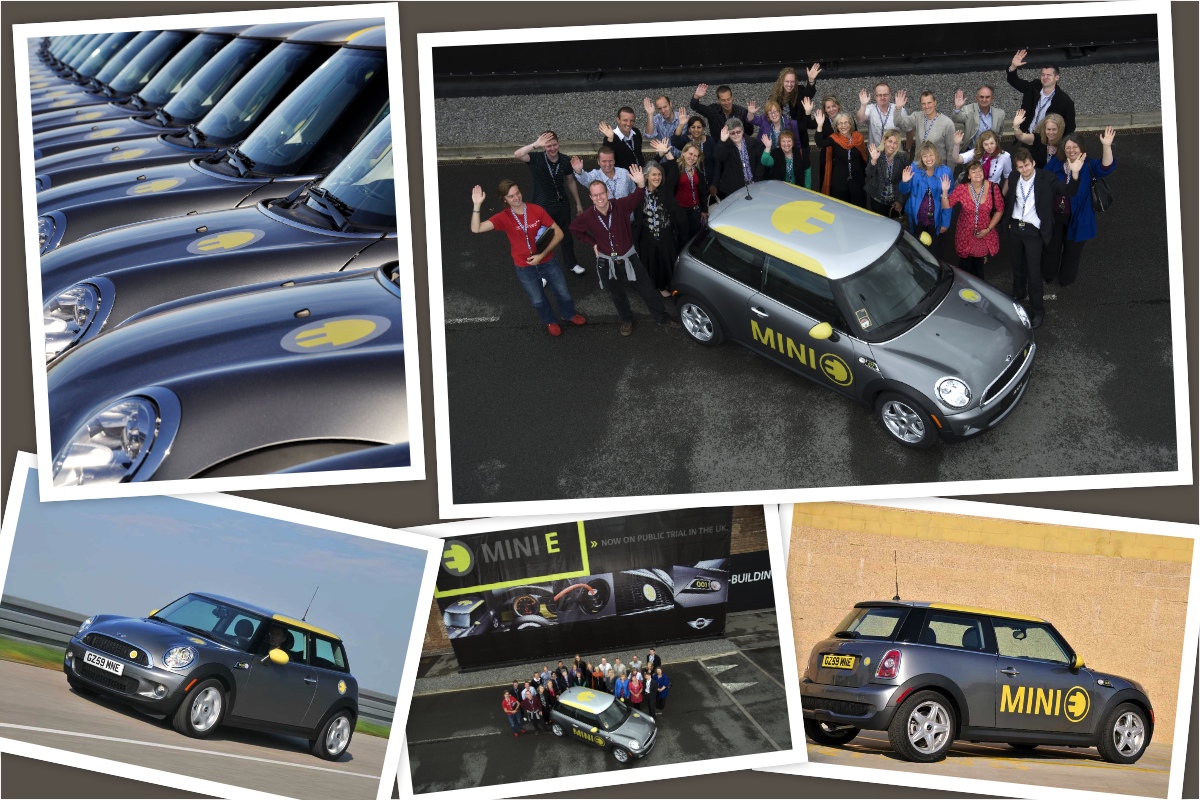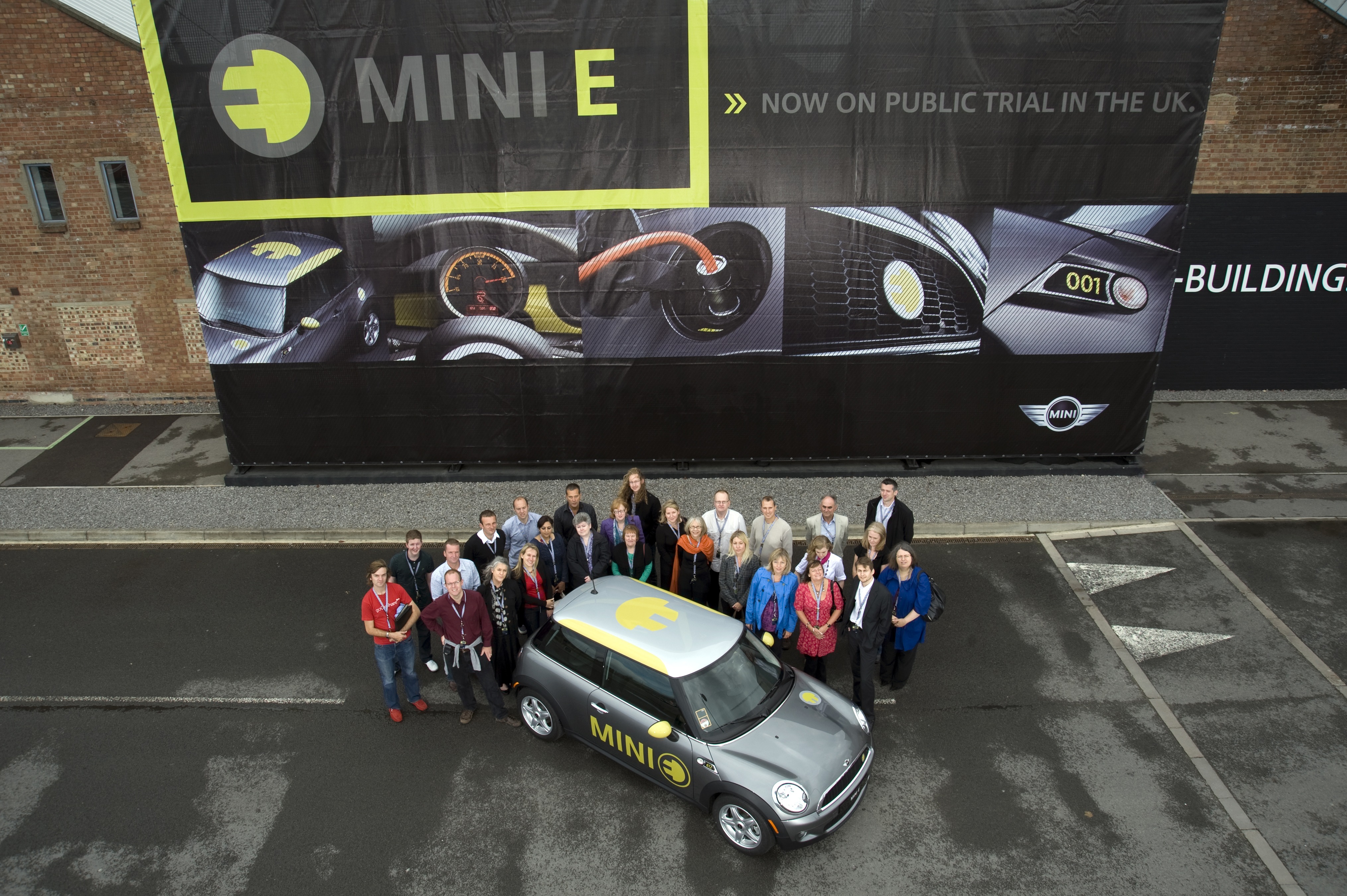MINI publish the results of their in-depth Electric Vehicle trials.
Finally some encouraging news on EV use, an electric vehicle trial has been completed and the BMW Group have just published the results of their gov’t supported research on the day to day use of electric cars and EV’s. It provides some quite hopeful results, the cars completed over 250k miles on UK roads with a selection of public and pool drivers across the UK. The in depth EV trials allow BMW to understand how in the real world electric cars would suit lifestyles in the UK. 62 members of the public and 76 pool users drove the cars over two six month periods. Data loggers in the cars and on the home charging points combined with driver research by Oxford Brookes University. So far this is the most in-depth trial of its kind on Electric Vehicle use.

BMW are using the data to make informed decisions towards the development of their 2011 BMW ActiveE car based on the 1 series coupe and their purpose built BMW i3 the first EV from BMW and set to launch in 2013.
Conclusions taken from the trial showed that the patterns of everyday use of the Mini EV’s weren’t radically different to if they had been driving conventionally powered cars. Average trips made were 9.5 miles compared to the UK average of 7.5 miles. The average daily distance fro drivers involved was 29.7 miles slightly more than the the 26.5 mile UK average. Four out of five drivers reported 80% of their trips could be done easily in the MINI E, this figure increased to 90% if the car offered a larger boot and rear seats.
Driving a daily distance of just under 30 miles, drivers range anxiety significantly reduced to the point of drivers being confident enough not to feel the need to charge the MINI E every night. The average was 2.9 times a week according to information fed back via electricity smart meters. Night-time tariffs encouraged drivers to charge at cheaper times. Nine out of ten drivers remarked, charging was better suited their lifestyle. 81 percent agreed with the statement “I prefer to plug in the car than go to a fuel station”. The savings on running costs were largely appreciated by users, with one participant telling researchers the thing she’d miss most was: “the money I will have to start paying for fuel again!” Most drivers charged the cars at home using their wall mounted charging box although participants in the test believed ongoing it was important to have a comprehensive network of charging points in the UK.
Regarding the driving experience all participants had praise for the cars. All drivers enjoyed the quietness, with one user quoted as saying: “I like the silence – it’s very futuristic and it causes a reaction when people notice you pull away without making a sound.” All the participants also agreed with the statement: “electric vehicles are fun to drive.” The reason was partly down to the “fast pick-up and quick acceleration” of the 204hp MINI, again a statement that 100 percent agreed with. One even went so far to say it was “absolutely the best car I have ever driven”. Driving efficiently came to be seen as part of the enjoyment rather than a chore. Getting used the cards and charging took about 7 days to adapt to the characteristics od driving an EV, charging, range, regenerative braking and low noise.
Almost all participants, 96% said they would now consider buying an electric car as a result of their involvement. Half revealed they would consider paying a third more for an EV. A third said they’d consider taking the plunge within a year, while 55 percent said they’d hold fire for two or more years.
The MINI E Trial in numbers:
- 40 MINI Es
- 12 Months
- 138 Drivers (32 women 106 men)
- 258,105 Miles
- 33,345 Journeys
- 80,282 kWh Electricity
- Highest mileage by an individual driver over six months – 7954 miles
- Average mileage per vehicle over six months, including fleet pool cars – 3226
- Average cost to charge over six months – £60, less than 2p per mile
The MINI E trial was one of eight UK projects supported by the £25m Ultra Low Carbon Vehicle Demonstrator Programme. Their aims are to bring forward the introduction of viable electric passenger vehicles to the UK.

The 40 MINI Es used still on UK roads in activities which continue to promote awareness and understanding of electric vehicles. The cars will form part of the BMW Group UK’s official vehicle fleet for the London 2012 Olympic Games.
More about the trials can be found on the MINI website